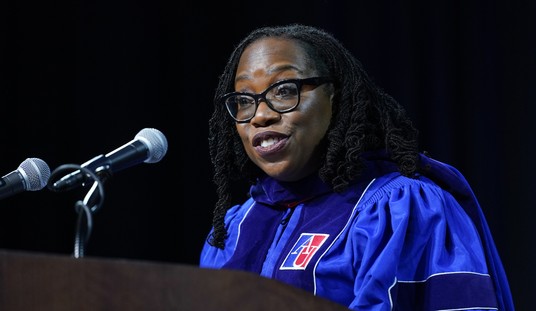At first, I wondered why Ron Paul would spend his morning after Iowa recycling Democratic demagoguery from two presidential cycles ago. Then I remembered who was talking:
Ron Paul came out swinging Wednesday against Newt Gingrich for calling him a dangerous candidate, dubbing Gingrich a chickenhawk who avoided the Vietnam War.
“I don’t want to fight a war that’s unconstitutional and I’m the dangerous person? You know, when Newt Gingrich was called to service in the 1960s during the Vietnam era, guess what he thought about danger? He chickened out on that, he got deferments and didn’t even go,” Paul said on CNN later in the morning.
“So right now he sends these young kids over there to endure the danger, and the kids coming back, the young people coming back and the ones in the military right now, they overwhelmingly support my campaign. We get twice as much support from active military personnel than all the other candidates put together. So, Newt Gingrich has no business talking about danger because he is putting other people in danger. Some people call that kind of a program a chickenhawk and I think he falls into that category,” Paul said.
Like most of Paul’s arguments, this is an exercise is hyperventilation and contradiction. First, Gingrich hasn’t sent any “young kids” anywhere; when Gingrich was last in office, it was before 9/11, and he was Speaker of the House, not President. In fact, between the two of them, only Ron Paul has voted to send “young kids” to war, with his assenting vote on the 2001 AUMF regarding Afghanistan (a correct vote, by the way). Second, c0ntrol of military policy properly belongs in the hands of elected civilian government, not the military itself. This attack relies on a rather fascistic notion that only those who have been in uniform can make those decisions, which would invalidate the entire idea of free elections. Gingrich didn’t break any laws in seeking and gaining those deferments, and it has little bearing on the wisdom of one’s national security policies, unless the presumption is that a flight surgeon from the 1960s has some special national-security insight that can’t be learned through study elsewhere.
However, that’s not the real message from Paul in this attack. At a moment when he should be taking aim at one of the two front-runners, Paul is wasting time and effort getting personal and nasty with a man he beat by eight points and thousands of votes in yesterday’s caucuses. That signals a sense of frustration, desperation, and a serious lack of focus from Paul. Clearly the Paul campaign thought they would win in Iowa and make a case for national consideration; instead, they fell thousands of votes short of both Rick Santorum and Mitt Romney. Paul could have easily shrugged off Gingrich as irrelevant, had he considered his finish last night a positive development. Instead, with only a third-place showing and little hope of gaining any traction in the next couple of states, Paul will fade back to the fringe quickly enough.
Update: My friend David Freddoso reminds me that Gingrich voted for the AUMF for the first Gulf War in 1990, but that hardly negates the point above. In terms of current conflicts, which have been the focus of Paul’s vehement campaigning, Gingrich didn’t cast a vote at all, and Paul voted for one of the two AUMFs in question.








Join the conversation as a VIP Member